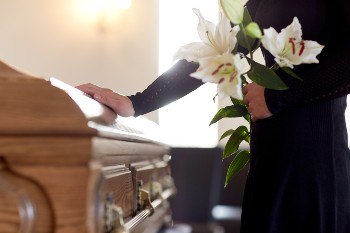
Losing a spouse is difficult enough, but if you relied on their income to help make ends meet, you can find your grief compounded by financial concerns. Fortunately, you may be entitled to Social Security Disability Insurance (SSDI) survivors benefits that can help. Here’s what you need to know about SSDI benefits for surviving spouses and other family members, and how our highly-skilled Social Security disability attorneys can help you obtain the benefits you need and deserve.
Credits for Social Security benefits accumulate as you work and pay Social Security taxes. The longer you work, the more credits you earn. However, no one needs more than 10 years of work to access benefits.
There’s also a special rule for SSDI beneficiaries with children. As long as they worked at least one-and-a-half years in the three years prior to their death, the Social Security Administration (SSA) can pay benefits to the children and the surviving spouse that’s caring for them.
The SSA will pay survivors a one-time benefit of $225 following a beneficiary’s death, provided they’ve worked long enough and you lived with the deceased. This benefit isn’t automatic; you’ll need to contact the SSA within two years of your spouse’s death to apply for it.
SSDI survivors benefits also include an ongoing monthly payment to surviving spouses (or another eligible family member). The amount of these benefits is based on a decedent’s work history and average lifetime earnings. The longer they worked, the higher the monthly benefit payment will be.
The percentage of benefits you can receive is as follows:
Aside from surviving spouses, other family members who can receive survivors benefits include:
You’ll need to notify the SSA of your spouse’s death as soon as possible. Oftentimes, funeral directors will make this notification as part of their services. However, to ensure that the death was reported—and reported properly—you can call the SSA at 800-772-1213 or contact your local Social Security office.
If you’re currently receiving benefits, your benefits will be converted to survivors benefits when you notify the SSA of your spouse’s death. If you aren’t currently receiving benefits, you’ll have to apply for survivors benefits and provide the following documentation:
At O’Connor Law PLLC, our skilled New York Social Security disability attorneys fight to help survivors obtain much-needed benefits after the death of a spouse. We know this is a difficult time. Let us review your claim, handle your application for benefits, and ensure the process goes as smoothly as possible. Contact us today to schedule an appointment for a free initial consultation.
| Related Links: |

